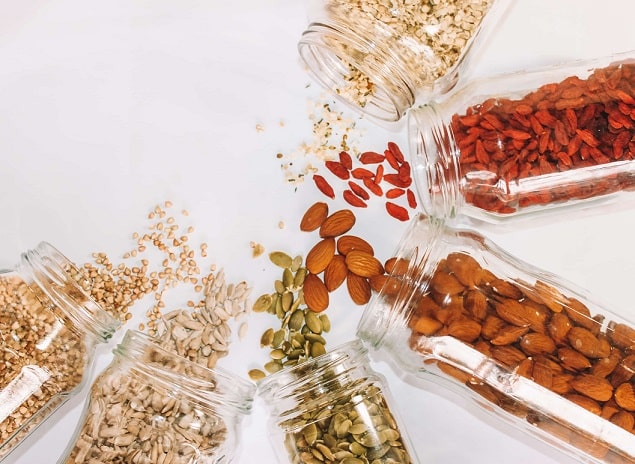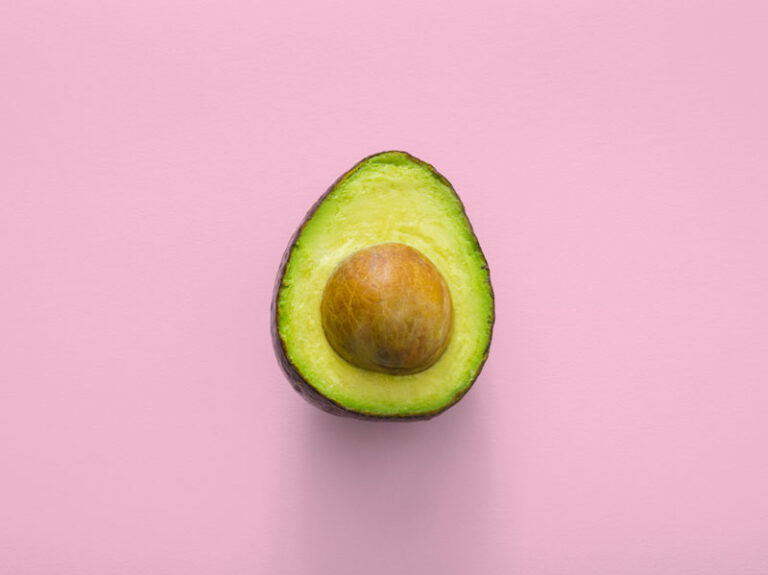
Can a dog eat fruit?
Which fruits can dogs eat and which are prohibited for dogs?
Can dogs eat nuts?
Yes, dogs can eat nuts – but only certain types. In moderation, they can be a source of vitamins and minerals. But there are also types of nuts that are absolutely prohibited. Read more about Can dogs eat nuts?
Can dogs eat apples?
Yes, dogs can eat apples. Apples are a source of vitamins A and C, and fibre for your dog. The danger is the core and the pips, which must be removed before the apple is served to your dog. Read more about Can dogs eat apples?
Can dogs eat pears?
Yes, dogs can eat pears. Pears provide magnesium, iron and B vitamins. They can make a great snack, but remember to remove the skin and seeds before serving. Read more about Can dogs eat pears?
Can dogs eat avocados?
No , if your dog eats too many avocados, it can lead to indigestion and diarrhoea. Avocados contain the toxin persen, which is harmful to dogs. A dog may also choke on a large avocado seed. However, there are advocates of giving avocados to dogs in reasonable amounts.
Can dogs eat bananas?
Yes, dogs can eat bananas, but in small quantities. Bananas provide dogs with potassium, vitamins, fibre and copper. Feeding bananas in large quantities too often can lead to dog obesity or constipation. Care should also be taken with dogs with ailments – especially heart ailments, and diabetes.
Can dogs eat blueberries?
Yes, dogs can eat blueberries. Berries are rich in fibre, antioxidants and vitamins. Berries are also good for your dog because they are low in calories. However, if eaten in too large a quantity, they can cause your dog stomach pains and diarrhoea.
Can dogs eat cherries?
No, dogs should not eat cherries. The seeds and stems contain cyanide, which can lead to poisoning. Read more about Can dogs eat cherries?
Can dogs eat cranberries?
Yes, dogs can eat cranberries. However, as with other fruits, be careful with the amount. Too many cranberries (even dried cranberries) can lead to an upset stomach. If you give your dog cranberries, do so in moderation.
Can dogs eat grapes?
No, dogs absolutely cannot eat grapes. This also applies to sultanas. Grapes can lead to severe kidney failure and are harmful to dogs of all breeds.
Can dogs eat mangoes?
Yes, mangoes are safe for dogs. However, be sure to feed only the pulp, removing the peel and stone. Mangoes can be a great source of vitamins
C, E, A and B6, as well as potassium. However, mangoes contain a lot of sugar, so don’t overdo it – as it can lead to your dog becoming obese.
Can dogs eat oranges?
Yes, dogs can eat oranges. They are a source of vitamin C, as well as calcium, potassium and iron. They also contain fibre. However, the seeds and peel must be removed before serving, which can cause digestive problems for your dog. Although they are safe, they are not necessarily to your dog’s liking due to the strong smell.
Can dogs eat peaches?
Yes, peaches are not dangerous for dogs. However, it is important to remove the peel before feeding them as it contains cyanide. This in turn can cause poisoning in your dog. Peaches will provide your pet with vitamin A and fibre. Canned peaches should be omitted – due to their high sugar content.
Can dogs eat pineapple?
Yes, dogs can eat pineapple. It is a valuable source of vitamins, minerals and fibre. It also contains bromelain, an enzyme that helps dogs to absorb proteins. Before giving pineapple to your dog, remove the peel, and the characteristic crown.
Can dogs eat raspberries?
Yes, dogs can eat raspberries. Raspberries are safe when given to dogs in small quantities. They contain antioxidants, are low in sugar and low in calories. They have anti-inflammatory properties and are a source of fibre, manganese and vitamin C.
Can dogs eat strawberries?
Yes, dogs can eat strawberries. Strawberries are a source of fibre and vitamin C. They can also be helpful in whitening teeth. However, they should be given in moderation due to their relatively high sugar content.
Can dogs eat watermelon?
Yes, dogs can eat watermelon. It will provide many vitamins (B-6, C and A), and potassium. As with humans, it can also be a great way to quench your dog’s thirst. However, be sure to remove the rind and seeds, which can have a negative impact on intestinal function.
Can dogs eat coconut?
Yes, dogs can eat coconut. Also in the form of coconut milk and oil. Coconut can effectively support the fight against bacteria and viruses, as well as bad breath and skin diseases. However, you can’t overdo the amount or your dog may get diarrhea.

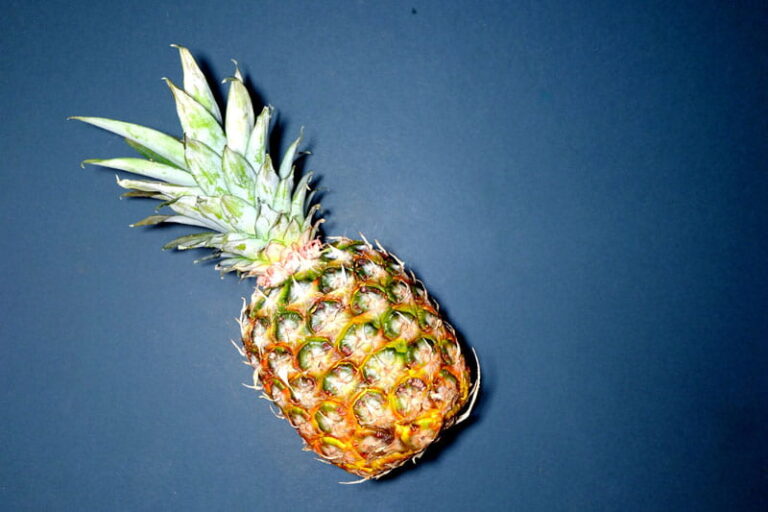
Can Dogs Eat Pineapple?

Can a dog eat a banana?
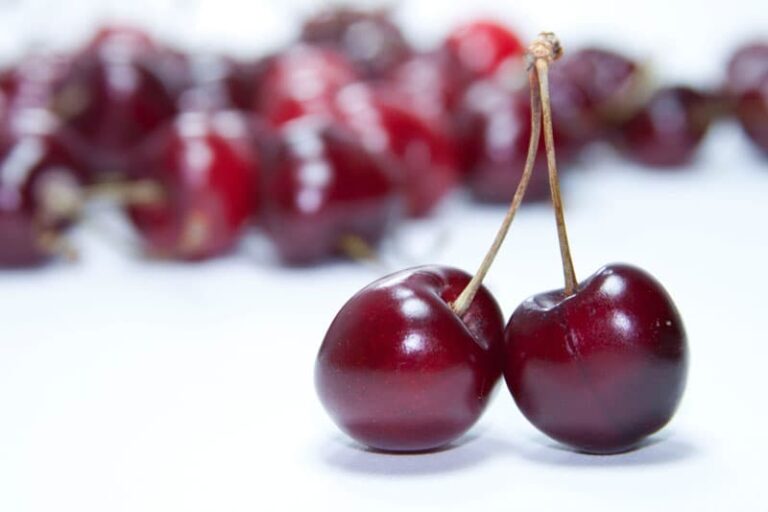
Can dogs eat cherries?
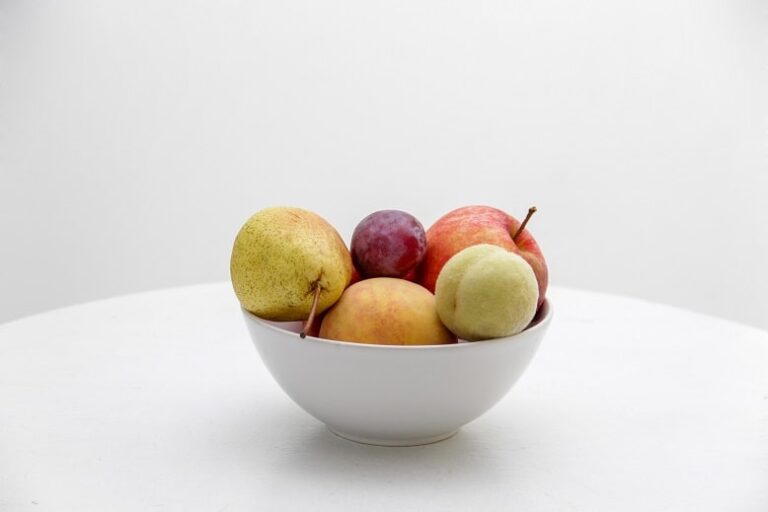
Can dogs eat apples and pears?
